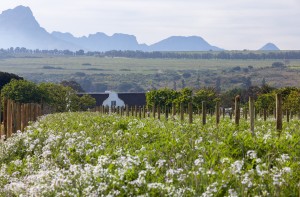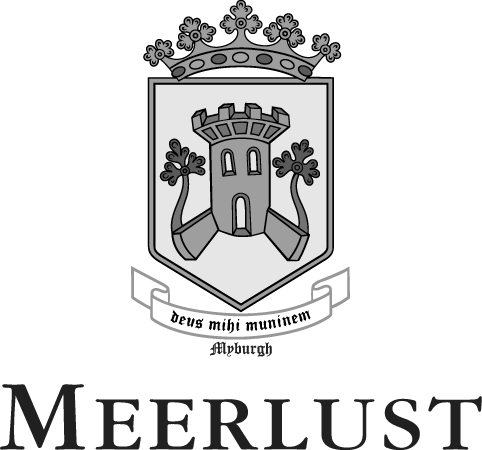Vineyard

Vineyard Overview
The Estate's close proximity to the ocean plays a major role in the climate at Meerlust. The Estate is uniquely positioned for the production of wines with exceptional complexity and character. 272 acres are planted with Cabernet Sauvignon, Merlot, Cabernet Franc, Petit Verdot, Pinot Noir and Chardonnay.
The Estate is blessed with very particular and suitable soils. The sub-soils are predominantly clay, from an ancient alluvial deposit, while the topsoil and intermingling layers are of progressively weathered granite gravel, originating from majestic granite mountains thrust up by volcanic activity some 160 million years ago. Its proximity to the sea allows its vineyards to benefit from the cooling effect of the prevailing south-east wind during the hot Cape summers, permitting a slow ripening of the grapes for a rich varietal aroma. The area experiences extremely heavy dew deposits and its annual winter rainfall measures approximately 550mm. Further moisture is derived from the mists that occur in this coastal belt during the ripening period. Temperatures are moderate around the year.
When the average rainfall is not sufficient in a particular vintage year, supplementary irrigation by drippers becomes necessary. This helps the vines to develop a better and deeper root structure, and, in return, equips the vine against drought and allows the vines to absorb soil supplement more effectively. For the connoisseur, this contributes to a stronger individual character to the wine. All vines are trellised and are pruned to limit the tonnage per hectare.
The secret of the suitability of the Meerlust soil lies in the varying composition of clay and granite. Where the soils are richest in clay, Merlot has been meticulously set down, so that the roots can penetrate deep into the soils, seeking the moisture held there by the sponge-like clay from the winter rainfall and made available to the vine throughout the ripening season. These soils are also spiked with black laterite deposits known locally as "koffie klip", which further add to the distinction and quality of our wines.
The hardy Cabernet Sauvignon and Cabernet Franc are planted on well-drained, warmer, predominantly granite gravel soils, where they are forced to work hard for their living, producing densely flavoured, characterful grapes. A small but carefully situated vineyard of Petit Verdot is planted on north-facing slopes.
Chardonnay vineyards are planted in well drained alluvial soils along the banks of the "Eerste" River while the Pinot Noir is planted on the most elevated, coolest part of Meerlust to create the pure expression of this variety.
These vines are hand-nurtured by the people who live and work on the Estate.
